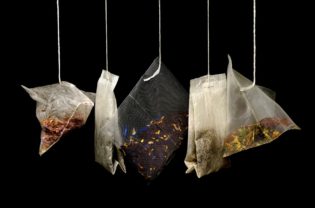5 Tea Myths and Their Truths

Whether you’re an avid tea lover or you’re just getting started, you probably have a lot of questions. What’s the best way to brew tea? Are loose leaves better than bags? Does black tea really have more caffeine than other teas?
Tea has a mysterious appeal to it. Perhaps it’s because it’s been around for centuries and used to treat all types of ailments. Or maybe it’s because it comes from all over the world. With wonder comes myths, and there is certainly no shortage of tea myths.
Let’s put those myths to rest and learn the facts about tea!
Myth #1: Black teas have more caffeine than green and white teas.
Truth: All teas have caffeine, and it varies from tea to tea and company to company.
All teas contain caffeine because they come from the same plant. But all caffeine contents vary based on the tea, the tea company, and many other factors. To give you an example, some people say that a cup of black tea has 25 milligrams per cup; some say 90 milligrams.
The factors that influence the amount of caffeine in tea are where and how it’s grown, the size of the leaves and the processing style. So it’s very possible for a green tea to have just as much caffeine as a black tea. Also, how long you brew your tea can have an impact.
Myth #2: Green tea is the healthiest.
Truth: All teas have health benefits.
Green tea has certainly earned itself a favorable reputation in the media. It’s been linked to everything from curing cancer to helping people lose weight. But is green tea really the healthiest tea? No. All teas have health benefits.
The most common claims about green tea is that it’s low in caffeine and contains a lot of antioxidants. Thanks to its oxidation process, it’s true that green tea does have more antioxidants compared to blacks and oolongs. However, science isn’t clear on what these antioxidants do.
Myth #3: Herbal tea is the same as tea.
Truth: Herbal teas are Tisanes.
True tea comes from the Camellia sinensis plant, which is where blacks, oolongs, greens and whites all come from. However, herbal varieties are typically made from flowers or the bark of other plants. So, herbal teas are actually tisanes.
Myth #4: Tea doesn’t have an expiration date.
Truth: The health benefits in tea decrease after six months.
Tea has a short shelf life of around six months. After this time, the antioxidants decrease significantly, particularly the catechins. Proper storage is important because it keeps the tea fresher for longer, but it’s still not going to give you a later expiration date.
Myth #5: Tea bags are just as good as loose tea.
Truth: Loose teas are higher in quality, while tea bags contain lower-quality tea dust.
The quality of tea depends on the type of leaves and how they are processed. The highest quality teas are hand-rolled loose leaves and the lowest quality are tea dusts. This is the stuff that typically goes into tea bags. Not only do these teas taste significantly different, but also they don’t have nearly the nutrition that loose teas do.
After reading the myths and their truths, do you feel more confident about what tea can do for you?

